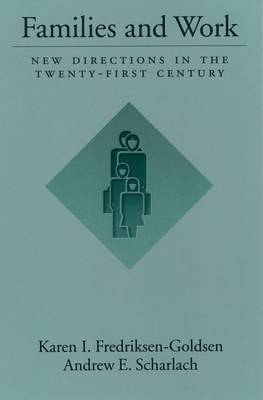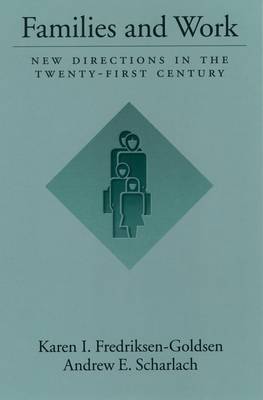
- Retrait gratuit dans votre magasin Club
- 7.000.000 titres dans notre catalogue
- Payer en toute sécurité
- Toujours un magasin près de chez vous
- Retrait gratuit dans votre magasin Club
- 7.000.0000 titres dans notre catalogue
- Payer en toute sécurité
- Toujours un magasin près de chez vous
Families and Work
New Directions in the Twenty-First Century
Karen I Fredriksen-Goldsen, Andrew E Scharlach
Livre broché | Anglais
56,45 €
+ 112 points
Description
Families and Work: New Directions in the Twenty-First Century provides an innovative framework for understanding the interface between family care and employment. It offers a detailed analysis of the needs and experiences of employed caregivers and examines the full range of employees' family care responsibilities, including the care of children, ill and disabled working-age adults, and the frail elderly. It also explores the impact of gender, race and ethnicity, and occupational roles in meeting multiple employment and family demands. Based on a critical review of research findings and conceptual approaches that have been used for understanding the integration of family care and work, this text examines the stress experienced by caregivers, the impact of multiple responsibilities, and the programs and benefits used to help alleviate conflicts between work and family. It also provides an in-depth look at the prevalence and types of care provided. A major focus of the book is the importance of forming an alliance among family, business, government, and the larger community to address the issues of work and family. The authors evaluate a variety of workplace programs, benefits, and policies that have been designed to support employees in meeting their work and family responsibilities. They outline new programs and public policies that are equitable to employees most in need and that respond effectively to the growing number of employed caregivers. Families and Work: New Directions in the Twenty-First Century is an essential text for courses in social work and the health and human services, psychology, and sociology.
Spécifications
Parties prenantes
- Auteur(s) :
- Editeur:
Contenu
- Nombre de pages :
- 336
- Langue:
- Anglais
Caractéristiques
- EAN:
- 9780195112733
- Date de parution :
- 03-08-00
- Format:
- Livre broché
- Format numérique:
- Trade paperback (VS)
- Dimensions :
- 156 mm x 234 mm
- Poids :
- 476 g

Les avis
Nous publions uniquement les avis qui respectent les conditions requises. Consultez nos conditions pour les avis.






